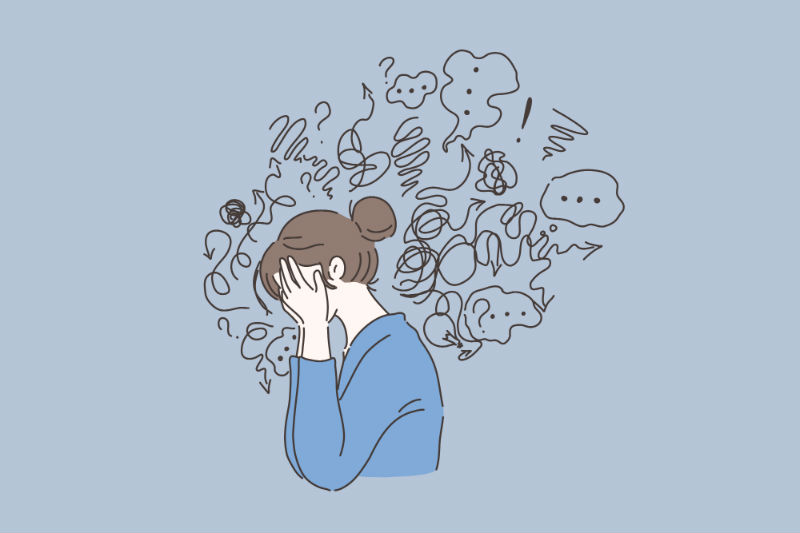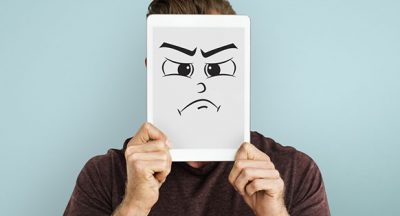
Anxiety: When talk therapy is not enough
Better understand the causes, impact, and solutions, for anxiety.
© 2016 Phoebe Hutchison
Have you had anxiety or panic attacks? Learn the causes, impact, and how you can reduce the symptoms of anxiety. You may feel frequently overwhelmed by anxiety, but you don’t have to be trapped in this state forever… but you DO need to understand the causes and seek help.
Symptoms of Anxiety:
Your heart races; you get the sweats. Your mind is uncontrollable, often racing or forgetful; it’s difficult to concentrate. Your adrenal glands are often at full speed, and you are reacting with ‘fight and flight’ too often. You feel as though at any moment you could malfunction or explode, so you avoid many situations and people. Your emotions are often out of control; the panic overcomes you, and with it you may feel disconnected from your surroundings, dizzy, sick in the stomach, or have chest pains. Your sleep and appetite are disrupted, leaving you feeling unwell and fatigued.
Impact of Anxiety:
Your anxiety may impact your work, relationships, belief in yourself, and trust in life. Many people with anxiety ‘self-medicate’ or attempt to escape, with drugs or alcohol. Sadly, drugs or alcohol further add to the neurotransmitter imbalances in the brain. You feel mental, but you are not! You are a victim of circumstance. You are still suffering from the past intolerable situation that has become deeply ingrained in your subconscious. Most people don’t understand you, as you often look ‘all together’, but this is your own personal hell, and you’ve been suffering from anxiety for years!
Causes of Anxiety:
At the heart of most anxiety is trauma, even from ten or twenty years ago. The impact of the trauma is deeply ingrained in your subconscious, causing a fear based belief system which has changed your perception of life and impacted your speech, behavior, and reality.
Some possible reasons for your anxiety:
- Childhood abuse (Physical, Verbal or Sexual)
- Witnessing a traumatic incident
- Being involved in a car accident
- Negative thinking (habitual)
- Abusive relationship (Past or current)
- Diagnosed Conditions: Depression, OCD, PTSD, Personality Disorders, Bi-Polar, etc,.
- Acquired brain injury or Large blow to head
- Past heavy drug or alcohol abuse
- Past Bullying
- Past trauma when you felt powerless – Event or Natural Disaster
Impact of Trauma:
When traumatized, you will often have flashbacks, sleep disruption, nightmares, avoidance of people and places, anger, guilt, shame, low self-esteem, feelings of hopelessness, and maybe thoughts of suicide.
When you have significant trauma, your body replays the traumas like a record player that is stuck – your trauma plays over and over. As a consequence, your body gets trapped in the world of triggers. You may frequently find yourself becoming hypervigilant, fearful, jumpy, on edge, and of course, angry. It doesn’t take much, and you are like a volcano erupting. Standard counselling techniques may not be enough to end this torment. Your anxiety may be the result of years of trauma, or it could be a part of Post-Traumatic Stress Disorder, where you have been in a ‘life death’ situation. Maybe you didn’t view an event as serious, but your mind/body are still having trouble resolving and processing the events. You need an expert in trauma; or someone who is trained in Post-Traumatic Stress Disorder – someone who works on three levels: Mind, Subconscious Mind and Body.
What can you do to help yourself right now?
- LISTEN TO AND CHALLENGE YOUR THOUGHTS
With over 70,000 thoughts per day, this is going to be a challenge. You have been programmed by friends, family, teachers, and life, to see yourself and life a certain way – either negative or positive. You are also programming yourself every day. It’s vital to listen to your thoughts, to ensure you are not criticising yourself or making incorrect assumptions about circumstances. You may need help, using CBT (Cognitive Behaviour Therapy) with a counsellor or psychologist, to improve your thoughts, to ensure you don’t get into the habit of ‘black and white’ thinking, etc., which just inflames anxiety.
- WALK
Aim for at least three 30 minute brisk walks per week, to improve the balance of serotonin and dopamine in your brain. These are key in improving you sense of well-being. Also, when you exercise, you are actively reducing cortisol, which is a stress hormone that makes anxiety worse. In addition, exercise creates endorphins, which is nature’s way of making you feel great, and emotionally more resilient.
- GIVE YOUR BODY REST
Anxiety causes an overload on many of your organs, your nervous system, and your adrenal glands. Try listening to music or using meditation to slow down or distract yourself from erratic thoughts. Take time out daily, just for you, to focus on relaxation, your hobbies, and rejuvenating. Support your overwhelmed body by staying well. Avoid illness that is common from anxiety. Rest the body, and the mind will follow.
- EAT HEALTHY AND REGULAR MEALS
Quality carbohydrates and proteins are key to improving your serotonin levels, ensuring you have continued strength, and that your blood sugar levels are more consistent. Many people with anxiety skip meals, and don’t eat well, adding to the overload on the brain and body.
- SIT IN THE SUN
Aim for fifteen minutes daily in the sun. This will help you absorb vitamin D, and make you more relaxed. Being kind to yourself is key to changing your life. When you start with small steps, these can become big steps.
- LIVE FOR YOU
Constantly ask yourself, ‘What do I feel like doing right now?’ Too many people live for others, leaving them feeling controlled or overwhelmed. When you feel unheard, disrespected, or manipulated, this sense of powerlessness only adds to your fatigue, and contributes to anxiety. Take your power back.
- ASK FOR HELP
Healthy emotional boundaries are important in improving your emotions. If you need help, reach out for help. Anxiety is exhausting, and you may need help in many areas of your life, while you are working towards a calmer mind and body.
- STOP BEING SO HARD ON YOURSELF
You didn’t ask to be traumatized, did you? No-one asks for anxiety. This happened TO you. It’s not your fault, but you can change your thought and lifestyle habits. You are not inadequate; you are suffering. You usually can’t fix this alone.
- SEE YOUR DOCTOR
See your doctor and ask for the Mental Health Plan for your FREE (or subsidized) 6-10 counselling sessions with a psychologist who specializes in trauma and anxiety. The doctor may also recommend medication to improve an imbalance of neurotransmitters in your brain, such as Serotonin or Dopamine, or beta blockers.
- GO DEEP – GET PROFESSONAL HELP FOR YOUR TRAUMA WITH A SPECIALIST
Following are three techniques that can help reduce trauma – working with thoughts, The Mind, The Subconscious Mind and The Body. These ‘deep’ methods have caused many people to experience profound healing and change. Feel free to Google these techniques to learn more and find the psychologist/therapist in your area who specializes in one of these three techniques:
Somatic Therapy
(Founder Peter Levine): Learn to heal trauma by working with a somatic trained therapist to regulate emotions and body, in the here and now.
www.seaustralia.com.au
EMDR: Eye Movement Desensitization
(Founder Dr Shapiro): Learn to heal trauma by re-processing the memories in the subconscious, by working with a therapist trained in EMDR.
www.emdraa.org
Brainspotting
(Founder David Grand): Learn how the eyes and subconscious work together to find the spots of trauma in the subconscious, then release and re-process these emotions and trauma by working with a therapist trained in Brainspotting. www.brainspottingaustraliapacific.com.au
Gestalt Therapy
Work in the present moment, and discover feelings that have been suppressed as well as learn how to accept and trust your emotions.
https://www.gestalttherapyaustralia.com.au/
Heal the past and enjoy your life. You deserve to experience more peace, control, and happiness and re-connect to life again. It all starts with you… I want you to have the best life possible. With these tools, and with a little help from a trauma expert, healing is possible.
Related Posts
Why an addict needs love
Why Addicts Need Love© 2018 Phoebe Hutchison Working with people who have...
The Grief Process: 9 Ways to Cope Better
Author: Phoebe Hutchison Discover why the process of grief is designed to...
How to handle conflict
How to handle the problem person in your life; whether it be a workmate, friend,...
PLP Solutions DASS-21 results for 2023
The results are from our PLP Solutions 12 session program. The PLP (Passionate...



